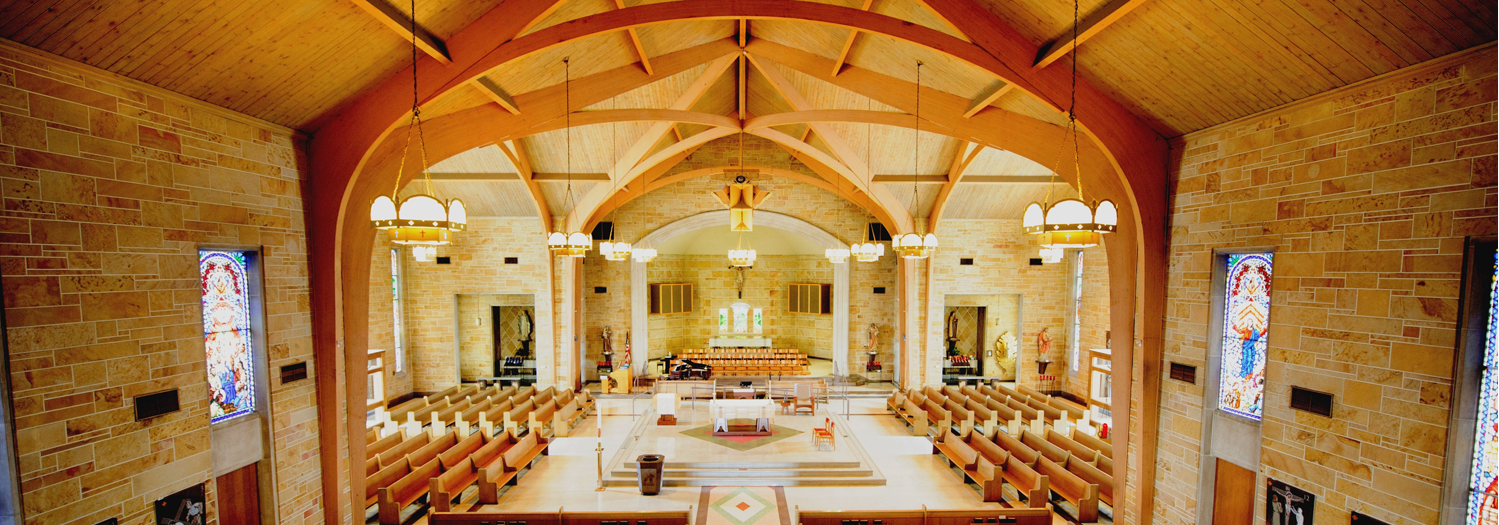Fr. Bob’s Homily
June 29, 2025
My Brothers and Sisters,
First, I want to thank all of you for being here today to help me celebrate the fiftieth anniversary of my ordination to the priesthood. I am touched by your presence here.
Today we celebrate the Solemnity of Sts. Peter and Paul. On a beautiful summer evening, fifty years ago today, I was ordained to the priesthood by Saint Pope Paul VI in St. Peter’s Square along with Fr. Jim Farrell and 357 other men from throughout the world. Msgr. Bosler, then pastor of Little Flower, organized a pilgrimage to Rome for our ordination, and 93 people, mostly parishioners of Little Flower, made the pilgrimage to Rome.
Over the years, people have often asked how I was chosen to be ordained by the Pope. I was in the right place at the right time. 1975 was a Holy Year, and Pope Paul VI announced that during the course of the year, he would celebrate all the sacraments. Therefore, he invited all the bishops of the world to send students to Rome to be ordained by him. Fr. Jim and I were both studying in Rome at the time.
When we celebrate the Solemnity of Sts. Peter and Paul, we really are celebrating the Church universal. In the Preface from the former Sacramentary, we prayed, “Peter raised up the Church from the faithful flock of Israel. Paul brought your call to the nations, and became the teacher of the world. Each in his chosen way gathered into unity the one family of Christ.”
Studying in Rome and being ordained by St. Pope Paul VI taught me some important lessons about what it means to be part of the universal Catholic Church. First, living and studying in Rome, the Eternal City, gave me an appreciation for the history of the Church. Second, studying in Rome and being ordained by the Pope gave me a sense of what it means to say that the Catholic Church is a universal, a world-wide, Church. Third, living and studying in Rome taught me to have a profound respect for all people. Finally, at the ordination, when the Pope gave me the kiss of peace and I looked into his eyes, I saw gentleness and kindness, the humanness of the Church.
Today I am grateful for my fifty years as a priest. Cardinal Tobin often reminded us that our God is a God of surprises. I have been blessed superabundantly throughout my life especially through my 50 years as a priest. My life has been full of surprises, including my assignments: St. Malachy, St. Matthew & the Tribunal, St. Christopher, and Little Flower.
When I was appointed pastor of Little Flower in 2003, my life had come full circle. The longer I have been here the more I have realized the influence Little Flower had on my life. It was the center of my life from grade school until ordination. Besides my parents, the biggest influences on my life and vocation, the influences who made me who I am today, were the Sisters, teachers, and priests at Little Flower when I was growing up.
Of course, I was influenced by all my teachers at Latin School, St. Meinrad (Fr. Meinrad Brune is here today), and the schools I attended in Rome. Likewise, I was greatly influenced by my pastors in the various parishes I served: Fr. James Ethrington at St. Aidan’s in London, Fr. Charlie Noll at St. Malachy, Fr. Jim Moriarty at St. Matthew, and Fr. Mike Welch at St. Christopher.
As much as I have been influenced by sisters, priests, and teachers, I have been influenced by the parishioners in each parish to which I was assigned, the young men and women I taught, and all those whose lives have intersected with mine.
My brothers and sisters, today is a day on which I give thanks in a special way. First, I thank God for the gift of my vocation to the priesthood, for all the gifts and blessings God has given me throughout my life, and for all the people who have touched my life in ways large or small, known or unknown. I also thank all of you for the gift you have been in my life.
